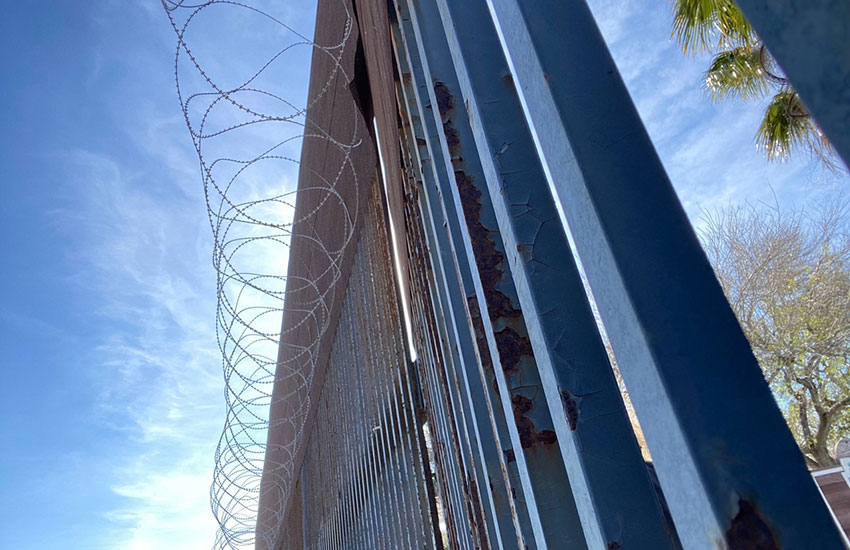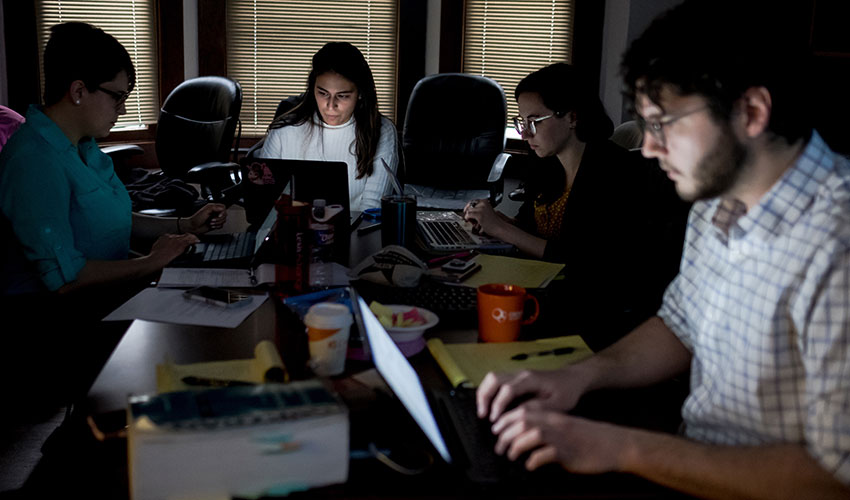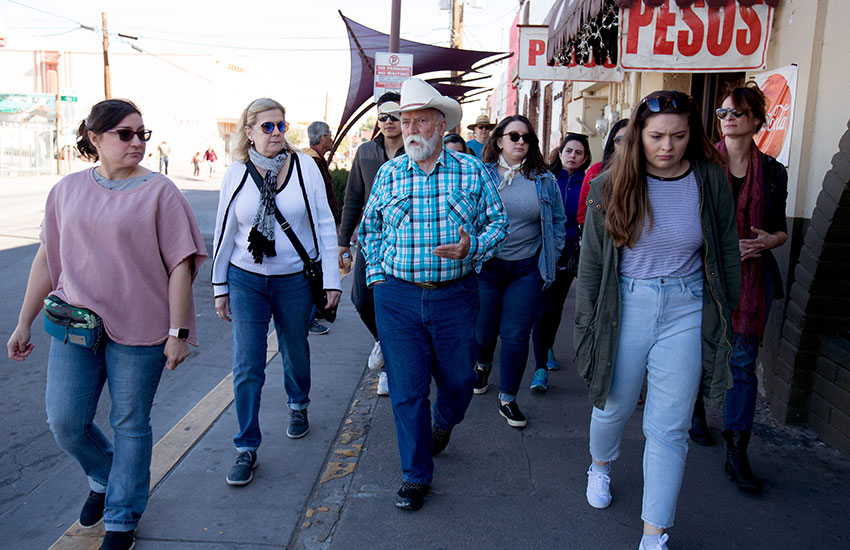Field trip to the busiest migrant corridor in the world
Katherine Kaufka Walts - Director. Center for
the Human Rights of Children,
Loyola University Chicago School of Law, USA
Midwest Province
[From “Jesuits 2023 - The Society of Jesus in the world”]
Law students accompany migrant children and families through legal services and advocacy.
Racism, poverty, climate change, violence and conflict are all contributing to unprecedented numbers of migrants attempting perilous journeys away from their homes and seeking safety within their own countries and across international borders. In their flight to a better place, many migrants, including an increasing number of children, experience hazardous conditions and restrictive immigration policies.
The Center for the Human Rights of Children
(CHRC) at Loyola University Chicago School of Law was founded in 2007 with a
mission to advance and protect the rights of children. CHRC engages in research
and scholarship, outreach and education, direct services, and advocacy on
behalf of migrant and trafficked children. Although children are the most
vulnerable migrants, international refugee and U.S. immigration legal systems
do not treat children as distinct from adults. Consequently, children face
immense challenges as they seek sanctuary and navigate legal systems that do
not provide protections aligned with their age and development. These
challenges compromise migrant children’s rights to safety, family unity and
nationality - universal principles enshrined by the U.N. Convention on the
Rights of the Child and harmonious with Catholic and Jesuit teachings.

In response to the crisis of increasing migration and lack of protections for children, the CHRC and its students have engaged in national and international research, direct services to migrants and advocacy confronting the abrogation of these human rights abuses. CHRC students and faculty are engaged in critical, and often life-changing, work.
A problem accentuated by the pandemic
In the wake of the Covid-19 pandemic, the U.S. engaged in “push-back” mechanisms under its “Title 42” policy, which uses an archaic public health law to deny migrants access to asylum proceedings as required under both U.S. and international law. CHRC students conducted research into the impacts of this policy and found that over 13,000 unaccompanied children were summarily expelled under Title 42. Many of these children were first secreted away to undisclosed and unlicensed commercial hotels. The use of secret detention practices placed children in environments ripe for predatory child abuse. CHRC shared its research via a report to the U.N., urging the international human rights community to investigate these issues, and called upon the U.S. to recommit to its international obligations under the Refugee Convention and Refugee Protocol.
The crisis lived at the US-Mexican border
Each spring, CHRC organizes a trip for law
students to the busiest migrant corridor in the world, the U.S.-Mexican border,
to partner with legal service organizations who serve migrant children and
families. Loyola students bear witness to the increasing militarization at the
U.S. border, and the indignities prevailed upon migrants by U.S. laws and
policies, including family separation and prolonged detention. Students directly
serve migrants by assisting with “Know Your Rights” presentations, asylum
applications and visa applications for human trafficking victims. Immigrants
who have access to an attorney are ten times more likely to receive protection
in the U.S.

Impressions of some of the student attorneys
“Visiting immigration detention centers and working with attorneys who help detained immigrants taught me that the United States is criminalizing and dehumanizing immigrants. The individuals I met were all fleeing extreme violence and were desperate for safety. They were not criminals. Instead, they wanted an opportunity to have a new life - similar to why my mother moved our family to the United States.” Francesca W. Chimenelli
“I believe that I have a special obligation as a future attorney to advocate for greater access to resources and benefits for immigrant populations that the U.S. citizenry has always enjoyed, whether we have been aware of it or not. There needs to be a deconstruction of the dichotomy between ‘us’ and ‘them’ and some work to eliminate the effects of policies and laws that reduce people into legal ‘non-persons.’ This is deeply intertwined with our national legacy of white supremacy and will require future attorneys to examine new law with an eye toward the ways that marginalized groups will be affected.” Malachy Schrobilgen
This year, students also participated in a
desert walk along the border wall between the U.S. and Mexico with Kino Border Initiative, a Jesuit
humanitarian organization working on both sides of the border. The walk
illustrated the extreme and hazardous conditions that our fellow human family
members endure as a result of governmental policies creating increasing miles
of border walls and limited access to legal means of entry. Loyola law students
showed solidarity with the experience of migrants desperate to seek safety,
sanctuary and family unity in the United States, including those who tragically
passed away in the Sonoran Desert because of exhaustion, dehydration or injury.

“I’ve always loved the Jesuit call to action ‘Go Forth, and Set the World on Fire.’ It’s a very appropriate image after seeing the cruelty of our legal system up close - there’s a lot that I would like to burn down (in a St. Ignatius-approved manner, of course!). This experience recentered me and reevaluated how I can use the immense privilege that I have as a prospective lawyer to the benefit of others.” Patrick Gilsenan
As global migration continues, it is important
to engage and train professional students to not only serve others, but to also
consider how to create a more just and humane immigration system. By working
across disciplines and systems, together with children and families impacted by
harmful policies, we can make a difference and advance social justice.







